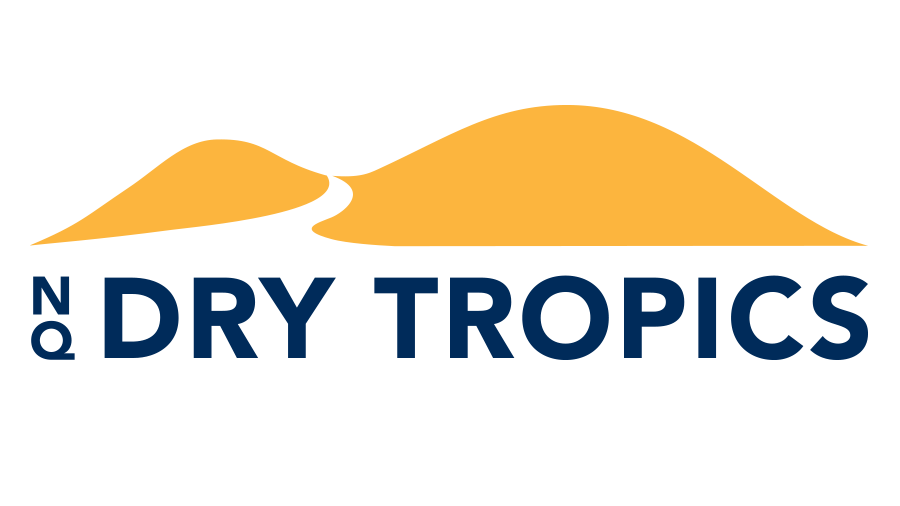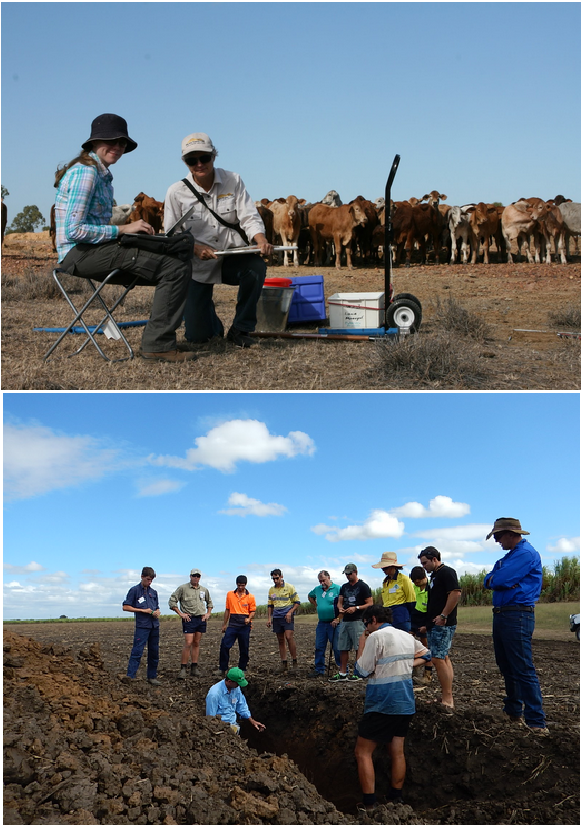 Sustainable Soils for the Burdekin (2013-2018)
Sustainable Soils for the Burdekin (2013-2018)
This 5 year Sustainable Soils for the Burdekin project (2013-2018) was funded through the Australian Government National Landcare Programme.
The project built on existing relationships with industry, local government, Traditional Owners and Landcare groups to strengthen the understanding of soil health and management within the grazing and grower community in the Burdekin catchment. Graziers and growers were encouraged to increase their understanding, share knowledge and undertake strategic on-ground management activities.
The project supported and added value to the Reef Programme initiative and project outcomes are consistent with:
- reducing soil and nutrient losses;
- improving soil health and adopting sustainable land management practices;
- building partnerships to improve sustainable natural resources management; and
- increasing productivity across a range of primary industries
Engagement and extension activities built understanding on the physical, chemical and biological properties of the soil resource, and the variability in these properties both horizontally and vertically throughout the farming system. These properties were then linked to soil management strategies, increasing resilience and protecting the resource base.
Reduced sediment and nutrient loss were addressed through improved management of soil resources via planned strategic grazing and cropping practices. Practice changes were implemented through capacity building extension and engagement activities.
Outcomes
- Increased the percentage of farming and fishing entities and land managers improving their knowledge and skills in managing our natural resources to deliver ecosystem services.
- 10 demonstration sites through 10 farming entities conducting trials of new sustainable land management strategies aimed at improving soil health over a total area of at least 2400 ha;
- 25 workshops including tailored education materials delivered to a total of 265 attendees;
- Increased the percentage and area of farming entities that have adopted sustainable land management practices to increase productivity and improve the quality of ecosystem services delivered to the broader community from their land, whilst building their resilience to climate change.
- 69 farming entities adopting sustainable practices as a result of training received, representing an area of 8900 ha
- Increased engagement and participation by regional communities, groups or individuals in natural resource management activities.
- Assisted 130 landholders who are practising grazing or intensive cropping within the Burdekin Dry Tropics NRM region, to conduct self-assessment of management of the soil resource;
- Assisted the development of 5 producer peer groups focused on information sharing and peer review of practices relating to sustainable land management, and particular the soil resource.
Factsheets
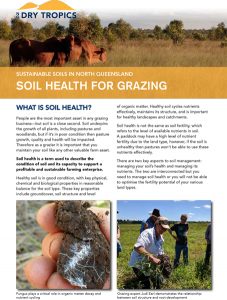 |
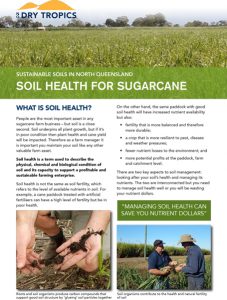 |
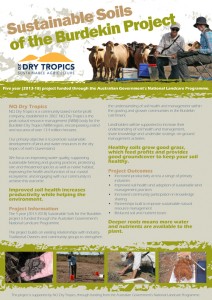 |
